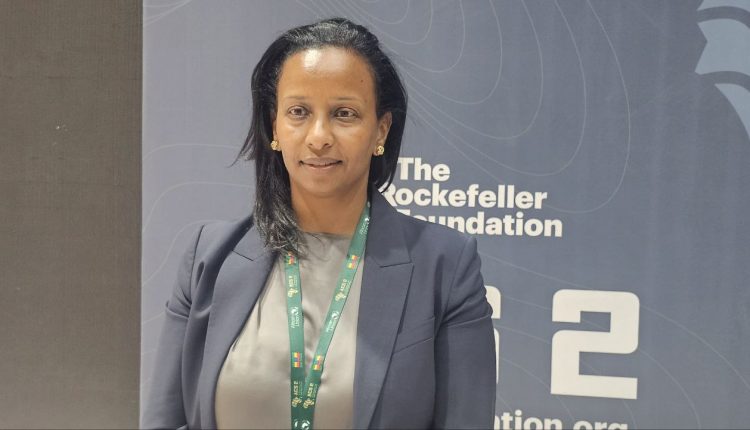Mission 300 Targets Energy Access, Jobs, and Economic Empowerment for Africa’s Youth and Women
Addis Ababa, September 10, 2025 (FMC) – The Global Energy Alliance for People and Planet (GEAPP), a philanthropic initiative originating from the Rockefeller Foundation, is leading efforts to provide electricity to 300 million Africans by 2030 through its Mission 300 initiative, according to Enas Abdella Abdulmalik, GEAPP’s country lead for Ethiopia.
GEAPP focuses on accelerating energy access, deploying renewable energy, and creating economic opportunities through partnerships with governments, multilateral institutions, and private investors.
In an exclusive interview with FMC, Enas said Mission 300 is a collaborative effort involving the African Development Bank, the World Bank, the Rockefeller Foundation, and other partners to tackle Africa’s energy access challenges. She highlighted the Tanzanian Declaration, endorsed by nearly 30 African heads of state earlier this year, as a demonstration of continental commitment.
Enas described GEAPP’s role as mobilizing philanthropic, private, and multilateral capital to finance both large-scale renewable energy projects and off-grid solutions. “We shape markets to align energy demand with supply and bring stakeholders together to accelerate the delivery of Mission 300,” she said.
The initiative builds enabling ecosystems, including utility-scale renewables, battery storage, and off-grid mini-grids, with distributed renewable energy expected to serve more than half of Mission 300 targets. She cited Nigeria’s DART program, which cut solar equipment costs by up to 30 percent and helped standardize the distributed renewable energy market.
Enas stressed that productive use of energy is central to the initiative. “Providing electricity is not enough. People also need appliances and opportunities to use energy effectively. That’s why we focus on fostering economic activity in underserved regions,” she said. Through the Compact Delivery of Monetary Units (CDMU), GEAPP helps governments implement national energy compacts by coordinating partners and reducing bureaucratic barriers.
On technical innovation, Enas noted GEAPP’s support in Malawi updating the Integrated Resource Plan to create a pipeline of priority grid and transmission investments. In Ethiopia, she leads the Distributed Renewable Energy Agriculture Modalities (DREAM) program, designed to establish Africa’s largest centralized irrigation scheme powered by off-grid solar mini-grids. “This project will improve farmers’ livelihoods while providing subsidized electricity for homes and businesses,” she explained.
She emphasized equity, gender, and youth inclusion. “Green energy should create jobs and improve livelihoods for women, youth, and low-income communities. Our Energizing Women and Youth in Agri-Food Systems program in Nigeria and Ethiopia aims to provide jobs for 17,000 young people, improve livelihoods for over 130,000 people, and increase income for young women farmers by 400 percent,” Enas said.
Addressing financing challenges, she highlighted the Productive Use Appliance Financing Facility, a $6.5 million program expanding access to income-generating appliances. “In the first phase, we provided over 16,000 appliances, supported 28 businesses, and created 20,000 jobs in Nigeria and Ethiopia. We have now launched the second phase to expand this impact,” she said.
On Ethiopia’s energy sector, Enas noted that private sector participation in off-grid electricity generation has only been allowed since 2020. “Many mini-grid projects relied on grants, but we are close to unlocking concessional financing from AFDB-CEFA, enabling private developers to begin construction under the mini-grid directive this year,” she said. Once trial projects start, GEAPP will provide feedback to make the system more private sector-friendly.
“Mission 300 is about more than financial investment,” Enas said. “It requires collaboration, innovation, and a focus on sustainable economic opportunities. Through these efforts, we aim to ensure Africa’s energy transition benefits communities and economies equitably across the continent.”

